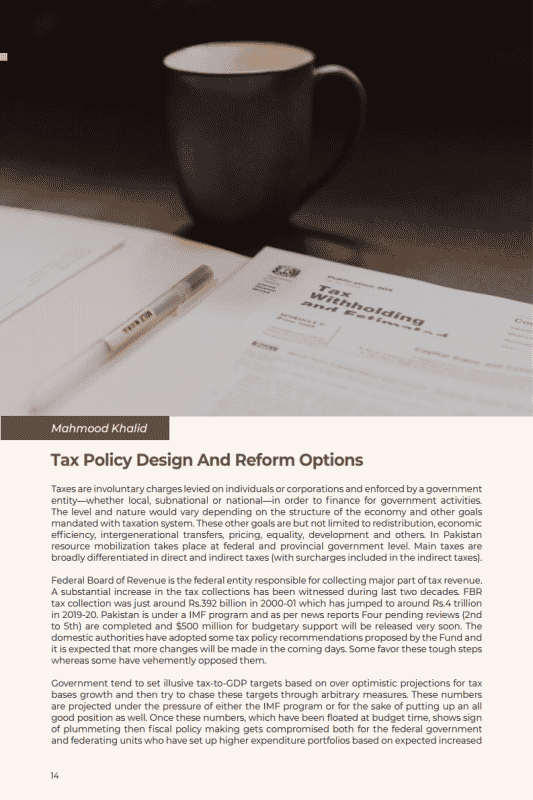Tax Policy Design And Reform Options
Taxes are involuntary charges levied on individuals or corporations and enforced by a government entity—whether local, subnational or national—in order to finance for government activities. The level and nature would vary depending on the structure of the economy and other goals mandated with taxation system. These other goals are but not limited to redistribution, economic efficiency, intergenerational transfers, pricing, equality, development and others. In Pakistan resource mobilization takes place at federal and provincial government level. Main taxes are broadly differentiated in direct and indirect taxes (with surcharges included in the indirect taxes). Federal Board of Revenue is the federal entity responsible for collecting major part of tax revenue. A substantial increase in the tax collections has been witnessed during last two decades. FBR tax collection was just around Rs.392 billion in 2000-01 which has jumped to around Rs.4 trillion in 2019-20. Pakistan is under a IMF program and as per news reports Four pending reviews (2nd to 5th) are completed and $500 million for budgetary support will be released very soon. The domestic authorities have adopted some tax policy recommendations proposed by the Fund and it is expected that more changes will be made in the coming days. Some favor these tough steps whereas some have vehemently opposed them.




